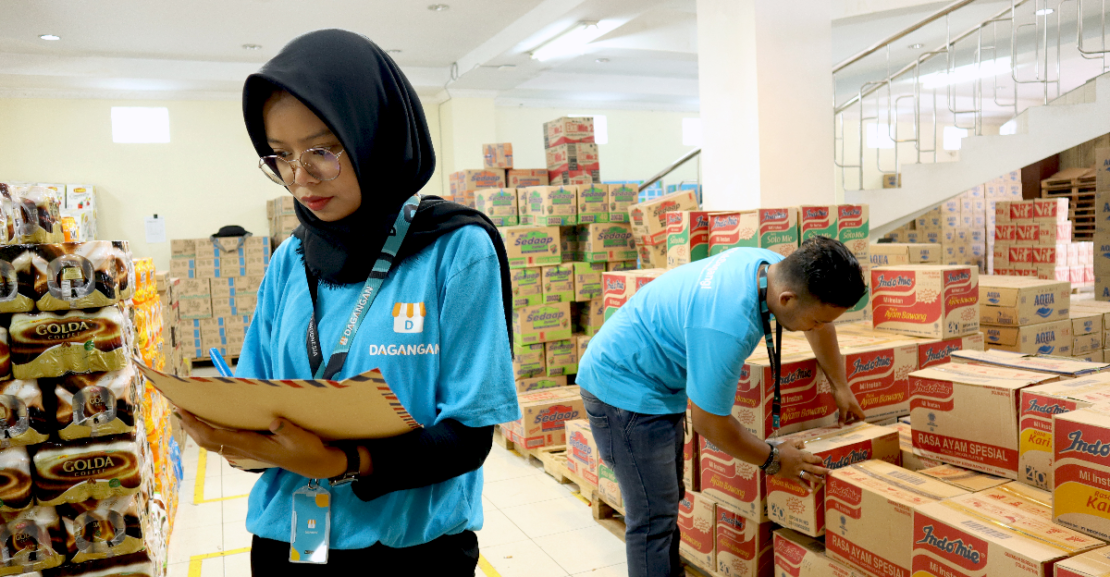Indonesian rural-focused social commerce startup Dagangan is introducing online merchandise shopping services to fulfill primary needs for rural communities so that they can shop from home and have their groceries delivered within 24 hours without postage via its local stock centers.
The time and cost efficiency that Dagangan offers is a profitable option to many, especially for people living in villages and other rural areas, where they have to travel up to 2-3 hours just to shop for what they need in the nearest town.
A Dagangan user, Mrs. Suherna from Prapag Lor Village, Losari District, Brebes, confirmed this. She shared, “Usually it takes me 2-3 hours to go to the market and buy basic necessities. However, since using the Dagangan app, I can save time and money. I can shop from home and the ordered items are delivered directly to my house.”
According to a recent social and economic impact report from Unicef, during the Covid-19 pandemic, more than 20% of people in rural areas experienced cost overruns for basic needs as a result of limited mobility. Rural communities now are forced to spend more time and money to buy daily necessities.
“Dagangan is expected to accelerate economic equality by paving ways for the rural communities to access their basic needs in an efficient manner. They now have the same opportunity as urban communities, completely meeting their daily needs affordably, without incurring additional shipping costs,” said Ryan Manafe, CEO and Co-founder of Dagangan.
The Hubs-and-spoke Operational Model
Serving the people who live in Tier 3 and 4 areas is becoming a focus for various business lines in Indonesia, especially in the retail business. This is because, for one, Indonesia is the largest economy in Southeast Asia, and two, three out of five Indonesians, live in rural areas. Dagangan’s strategy to focus its operations in rural Indonesia gives them a strong position in the supply value chain.
Understanding the lack of access to basic needs in rural areas, Dagangan implemented a hubs-and-spoke model that allows them to establish a synergy with community leaders, local SMEs, and entrepreneurs, which play key roles in interacting within the communities. Dagangan believes that this is the most efficient and right approach in order to penetrate rural areas of Indonesia, which were previously difficult to reach.
“The hubs-and-spoke operating model helps large producers, both national and international, reach areas that were previously difficult to enter due to logistical limitations. Currently, we have more than 40 hubs (stock centers) spread over several points in rural areas so that the delivery to customers will be faster and cheaper,” said Maha Willy Chandra, COO and Co-founder of Dagangan.
The Dagangan business model also enables communities to benefit from their participation as distributors, resellers, or agents of various primary goods, and even as shop owners or retail buyers. In addition, Dagangan also supports community empowerment in entrepreneurship by facilitating high-quality local products to access a wider market. Now, hundreds of local products have reached the national market through various distribution channels; traditional, modern, and digital.
To date, Dagangan has served over 100,000 transactions and reached more than 8,000 villages in West and Central Java, as well as the Special Region of Yogyakarta. Going forward, Dagangan will continue to expand its operations, both in Java and outside of the island, so that more rural communities in Indonesia can benefit from its services.

